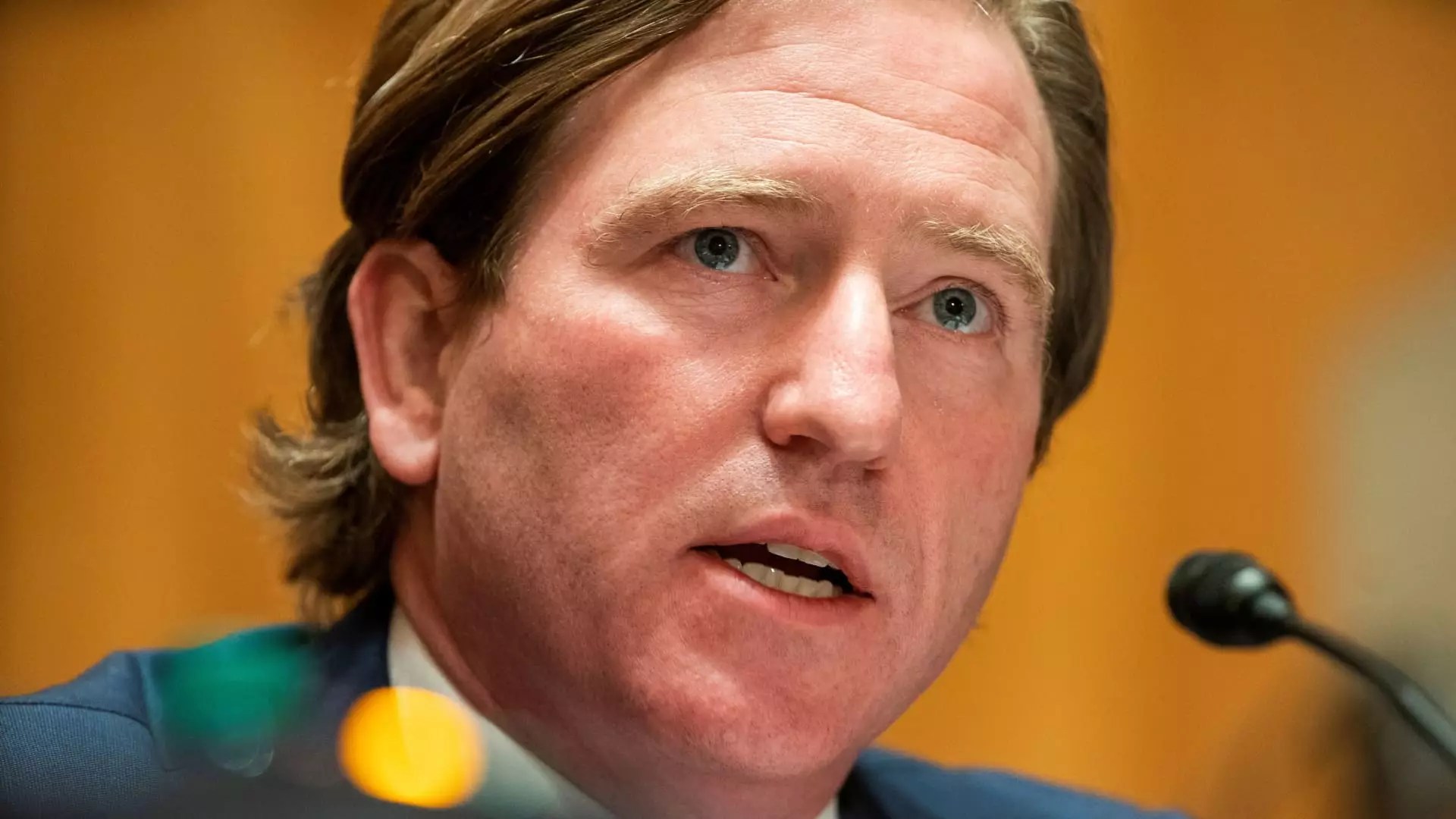The landscape of American corporate governance is shifting dramatically under former President Donald Trump’s lingering influence. The recent exit of Chris Krebs from SentinelOne is a prime illustration of how political vendettas can permeate into the private sector, causing profound ramifications for the integrity of both institutions and individuals. With a cursory glance, one might dismiss Krebs’ resignation as administrative routine. Upon deeper analysis, however, it unveils a disturbing pattern where a former president wields power over corporate entities, directly impacting their operational decisions and strategies through intimidation and coercion.
Krebs, having previously helmed the Cybersecurity and Infrastructure Security Agency (CISA), became a target after his unequivocal affirmation of the security of the 2020 presidential election—a position wholly at odds with Trump’s baseless claims of election fraud. By signing an executive order that specifically targeted Krebs and those associated with him, Trump demonstrated a chilling precedent: the intersection of politics with private enterprise can lead to forced resignations and significant public discourse on free speech, accountability, and ethics.
Political Repercussions in Corporate America
In the context of Trump’s corporate campaigns, one must consider the implications of such an order on broader freedom of expression. When the President of the United States condemns an individual as a “bad-faith actor” for upholding the truth, it sends a clear message to CEOs, employees, and investors alike: dissent will not be tolerated. This type of political interference isn’t mere rhetoric; it constructs an ideological and economic climate that fosters fear and anxiety across companies that may face backlash for supporting or employing those deemed undesirable by political figures.
The voluntary departure of Krebs, despite his assertions of pursuing a public fight for democracy and the rule of law, highlights that few are willing to risk their personal standing or that of their companies in the face of Trump’s relentless tactics. It raises the question of whether corporate leaders can maintain a stance of neutrality or support for democratic principles in such a polarized atmosphere. The interplay between individual ethical standards and corporate interests cannot be downplayed. When the two collide, the fallout often compromises the integrity and mission of companies at large—a depredation that threatens not just these entities but the foundational premises of democracy itself.
The Fragile State of Cybersecurity
SentinelOne finds itself thrust into the limelight not solely due to Krebs’ prominence but due to the increasingly critical role cybersecurity plays in safeguarding national interests. With cyber threats evolving at an unprecedented rate, the reliance on private companies for expertise in threat detection and prevention is paramount. Yet, with President Trump’s hand reaching into corporate alliances, businesses like SentinelOne may find their ability to operate freely substantially hampered.
The shadow of government oversight looms larger as companies navigate their dependencies on federal contracts. With SentinelOne noting that their revenue is partially contingent upon relationships with government entities, the ramifications of Trump’s interferences can lead to widespread distrust within corporate circles. If companies perceive potential threats to their contracts or funding based on the hiring of individuals perceived unfavorably by Trump, this creates a chilling effect that stifles innovation and collaboration vital for national security.
Moreover, Krebs’ acknowledgment of the repercussions of the executive order is telling—his decision to resign and immediately engage in a public battle highlights that the pressure weaves through not just professional environments but also socio-political fabric. It dictates how future cybersecurity landscapes will be shaped and defines the levels of trust companies can sustain with governmental bodies wary of political ramifications.
The Dissonance of Defense Innovation
The implications extend into the realm of technological innovation. The creation and sustenance of advancements in defense technologies are at risk when corporations feel compelled to bow to political pressures, leaving them vulnerable to industry standards that diverge from accountability and ethics. While Krebs emphasizes the need to foster public-private collaboration, the question must be asked: how can true collaboration exist in a space where personal and institutional safety are under siege from political machinations?
In a troubling act of irony, the world of cybersecurity—a field designed to safeguard information and uphold ethical standards—is experiencing an existential threat from the very forces it aims to protect against. Without a clear delineation separating corporate integrity from political ambitions, the future of cybersecurity could devolve into a politically charged battleground where innovation is sacrificed for ideological gains. The real crux lies at the intersection of corporate America and political strife, highlighting that the stakes are far greater than the fate of one individual—they touch upon the essence of democracy itself.


Leave a Reply